USDA lowered its forecast for 2009 corn production and yields in the latest report out today, but increased the soybean estimate.
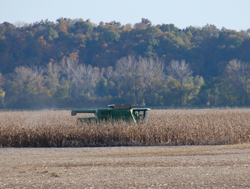 Corn production is forecast at 12.9 billion bushels, down 1 percent from last month but 7 percent higher than 2008. Based on conditions as of November 1, yields are expected to average 162.9 bushels per acre, down 1.3 bushels from October but 9.0 bushels above last year. Despite the drop in yield from October, this yield will be the highest on record if realized. Total production will be second highest on record, only behind 2007. Within the Corn Belt, forecasted yields in Minnesota and Wisconsin increased, while Illinois, Iowa, and Michigan yields decreased.
Corn production is forecast at 12.9 billion bushels, down 1 percent from last month but 7 percent higher than 2008. Based on conditions as of November 1, yields are expected to average 162.9 bushels per acre, down 1.3 bushels from October but 9.0 bushels above last year. Despite the drop in yield from October, this yield will be the highest on record if realized. Total production will be second highest on record, only behind 2007. Within the Corn Belt, forecasted yields in Minnesota and Wisconsin increased, while Illinois, Iowa, and Michigan yields decreased.
Soybean production is forecast at a record high 3.32 billion bushels, up 2 percent from the October forecast and up 12 percent from last year. Based on November 1 conditions, yields are expected to average 43.3 bushels per acre, up 0.9 bushel from last month and up 3.6 bushels from 2008. If realized, this will be the highest U.S. yield on record.
The corn harvest continues to lag far behind normal. According to USDA, just 37 percent of the corn had been combined as of Sunday, compared to 82 percent average. Soybeans are doing better with 75 percent harvest compared to 92 percent average.
Analyst Brian Hoops with Midwest Market Solutions told reporters on the Minneapolis Grain Exchange crop call that many farmers are talking about leaving their corn in the field. “There’s a lot of producers in the northern part of the corn belt, North Dakota in particular, that are likely to leave the crop sit throughout the winter because of the concerns about dry down and the cost of drying the corn down manually.”

 Last week, I was watching the Ellen DeGeneres Show because I knew she would be interviewing Jonathan Safran Foer, the author of “Eating Animals,” a gruesome attack against animal agriculture and a strong testimony for a vegan lifestyle. Recently, the National Pork Board responded to Foer’s statements, especially when he falsely linked H1N1 to a hog farm in North Carolina. Read on to learn more about this ongoing debate. To read the entire article and watch the video, link to the
Last week, I was watching the Ellen DeGeneres Show because I knew she would be interviewing Jonathan Safran Foer, the author of “Eating Animals,” a gruesome attack against animal agriculture and a strong testimony for a vegan lifestyle. Recently, the National Pork Board responded to Foer’s statements, especially when he falsely linked H1N1 to a hog farm in North Carolina. Read on to learn more about this ongoing debate. To read the entire article and watch the video, link to the 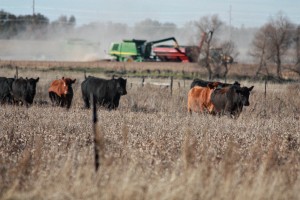 Head into a grocery store these days and consumers are offered aisles upon aisles of food choices. It’s been said that annually, food producers raise enough food to feed 144 people. With this efficiency, consumers can enjoy their favorite foods in abundance. As a result of our food surplus, new food options have become available, and as a result, conventional agriculture is under attack in favor of natural, organic and locally grown options. While I think it’s great and noble that consumers are trying to do better for themselves and the environment, I believe sometimes these food claims can be misleading. Apparently, others agree with me, as well.
Head into a grocery store these days and consumers are offered aisles upon aisles of food choices. It’s been said that annually, food producers raise enough food to feed 144 people. With this efficiency, consumers can enjoy their favorite foods in abundance. As a result of our food surplus, new food options have become available, and as a result, conventional agriculture is under attack in favor of natural, organic and locally grown options. While I think it’s great and noble that consumers are trying to do better for themselves and the environment, I believe sometimes these food claims can be misleading. Apparently, others agree with me, as well.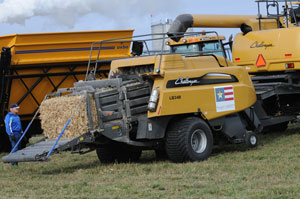 AGCO is one of the companies working on a
AGCO is one of the companies working on a 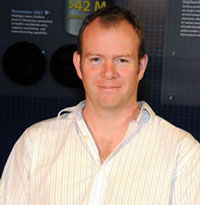 When it comes to research and development at
When it comes to research and development at 
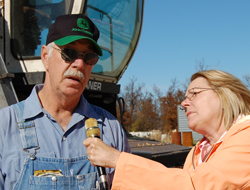 At least some farmers are finished with their harvest.
At least some farmers are finished with their harvest.  Commodity Update is making
Commodity Update is making  The National Association of Farm Broadcasting Trade Talk invites keep showing up and this is the week for the convention.
The National Association of Farm Broadcasting Trade Talk invites keep showing up and this is the week for the convention. AFBF has teamed up with the Agriculture Department’s National Agricultural Library to create the National Curriculum and Training Clearinghouse for Beginning Farmers and Ranchers. The program will help those who have decided to pursue a career in agriculture and will help support Farm Bureau’s commitment to rural development.
AFBF has teamed up with the Agriculture Department’s National Agricultural Library to create the National Curriculum and Training Clearinghouse for Beginning Farmers and Ranchers. The program will help those who have decided to pursue a career in agriculture and will help support Farm Bureau’s commitment to rural development.